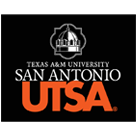A non-extractive research approach in a student-lead heritage conversation group
Abstract
Recent approaches to Spanish heritage language research have implemented Critical Language Awareness (CLA) methods in pedagogical practices to question and deconstruct educational processes as well as power relations while actively involving students, instructors and administrators (Martínez & Foulis 2022, Holguín Mendoza 2018). Building on CLA approaches, the present pilot study presents a non-extractive research approach that focuses on the active involvement of heritage language learners in the planning and development of a conversation group. This study integrates a framework of community-based participatory research (CBPR). CBPR can be defined by the three Rs: respect, relationships and reciprocity (Held 2020); furthermore, CBPR calls for researchers to not only engage members of the community, but to also have a degree of relevance within the community (Wallerstein et al. 2019).
Based on the researcher’s experience as an instructor and a heritage Spanish speaker, she noticed a common pattern among students – their desire to build community and to practice conversating in Spanish while studying at a predominantly white midwestern university. The researcher engaged in a critical conversation with students in heritage Spanish courses to discuss their interests and desired outcomes for a heritage Spanish conversation group. Students in these courses were invited to join the group, and others were recruited through a Latinx student newsletter and word-of-mouth. In collaboration with the researcher, students crafted an agenda and decided on conversation topics for each meeting. Two group leaders were selected from among the students to facilitate group discussions. Surveys and research notes were used to generate qualitative data.
Preliminary results suggest that students feel heard and have an increased sense of community. Students have also mentioned to the researcher during group interactions that they have become more comfortable expressing themselves in Spanish and enjoy community building and being involved in the research process.
A non-extractive research approach in a student-lead heritage conversation group
Recent approaches to Spanish heritage language research have implemented Critical Language Awareness (CLA) methods in pedagogical practices to question and deconstruct educational processes as well as power relations while actively involving students, instructors and administrators (Martínez & Foulis 2022, Holguín Mendoza 2018). Building on CLA approaches, the present pilot study presents a non-extractive research approach that focuses on the active involvement of heritage language learners in the planning and development of a conversation group. This study integrates a framework of community-based participatory research (CBPR). CBPR can be defined by the three Rs: respect, relationships and reciprocity (Held 2020); furthermore, CBPR calls for researchers to not only engage members of the community, but to also have a degree of relevance within the community (Wallerstein et al. 2019).
Based on the researcher’s experience as an instructor and a heritage Spanish speaker, she noticed a common pattern among students – their desire to build community and to practice conversating in Spanish while studying at a predominantly white midwestern university. The researcher engaged in a critical conversation with students in heritage Spanish courses to discuss their interests and desired outcomes for a heritage Spanish conversation group. Students in these courses were invited to join the group, and others were recruited through a Latinx student newsletter and word-of-mouth. In collaboration with the researcher, students crafted an agenda and decided on conversation topics for each meeting. Two group leaders were selected from among the students to facilitate group discussions. Surveys and research notes were used to generate qualitative data.
Preliminary results suggest that students feel heard and have an increased sense of community. Students have also mentioned to the researcher during group interactions that they have become more comfortable expressing themselves in Spanish and enjoy community building and being involved in the research process.

